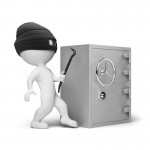 Human rights are commonly understood as an inalienable fundamental right to which a person is inherently entitled because he or she is a human being. The concept of human right has universal application and human rights come with them natural rights or as a legal right in both, but, what is meant by “right” has always been controversial and subject to debate. Such “right” includes the right not to be tortured, the right to remain silent, the right to a fair trial, the right to own property, the right to an adequate standard of living and the right of equal protection and equal treatment and equality before the law. The concept of human rights also came with it the right to be presumed innocence until proven guilty, by a court of competent jurisdiction to try the case. Such a right of being presumed innocence is also a legal right under the law. In a trial the prosecution has the legal duty and burden to prove the case against the accused person and the standard of proof is proof beyond reasonable doubt. When charged in court, as said earlier, human rights demand that all accused persons should be given equal protection […] read more
Human rights are commonly understood as an inalienable fundamental right to which a person is inherently entitled because he or she is a human being. The concept of human right has universal application and human rights come with them natural rights or as a legal right in both, but, what is meant by “right” has always been controversial and subject to debate. Such “right” includes the right not to be tortured, the right to remain silent, the right to a fair trial, the right to own property, the right to an adequate standard of living and the right of equal protection and equal treatment and equality before the law. The concept of human rights also came with it the right to be presumed innocence until proven guilty, by a court of competent jurisdiction to try the case. Such a right of being presumed innocence is also a legal right under the law. In a trial the prosecution has the legal duty and burden to prove the case against the accused person and the standard of proof is proof beyond reasonable doubt. When charged in court, as said earlier, human rights demand that all accused persons should be given equal protection […] read more Human Rights And Presumptions As An Aid In Criminal Prosecutions
 Human rights are commonly understood as an inalienable fundamental right to which a person is inherently entitled because he or she is a human being. The concept of human right has universal application and human rights come with them natural rights or as a legal right in both, but, what is meant by “right” has always been controversial and subject to debate. Such “right” includes the right not to be tortured, the right to remain silent, the right to a fair trial, the right to own property, the right to an adequate standard of living and the right of equal protection and equal treatment and equality before the law. The concept of human rights also came with it the right to be presumed innocence until proven guilty, by a court of competent jurisdiction to try the case. Such a right of being presumed innocence is also a legal right under the law. In a trial the prosecution has the legal duty and burden to prove the case against the accused person and the standard of proof is proof beyond reasonable doubt. When charged in court, as said earlier, human rights demand that all accused persons should be given equal protection […] read more
Human rights are commonly understood as an inalienable fundamental right to which a person is inherently entitled because he or she is a human being. The concept of human right has universal application and human rights come with them natural rights or as a legal right in both, but, what is meant by “right” has always been controversial and subject to debate. Such “right” includes the right not to be tortured, the right to remain silent, the right to a fair trial, the right to own property, the right to an adequate standard of living and the right of equal protection and equal treatment and equality before the law. The concept of human rights also came with it the right to be presumed innocence until proven guilty, by a court of competent jurisdiction to try the case. Such a right of being presumed innocence is also a legal right under the law. In a trial the prosecution has the legal duty and burden to prove the case against the accused person and the standard of proof is proof beyond reasonable doubt. When charged in court, as said earlier, human rights demand that all accused persons should be given equal protection […] read more How To Demolish Fingerprints Evidence Against You
 Is Fingerprints Evidence Reliable? The reliability of fingerprint identification evidence has routinely went unquestioned at all levels of courts and when fingerprint experts opined that the fingerprints at the scene of crime, say, a murder weapon matches that of the accused person, it commonly be understood that the fingerprints found to be evidence of guilt against the accused person. This is because not two persons, not even twins have identical fingerprints. Lawyers in such a situation normally panic and seldom got the confidence to question the accuracy rate of the examiner in analyzing the fingerprints in question nor question the average accuracy rate of the examiners’ profession. Is there a possibility that the fingerprints analyzed been wrong? Seldom lawyers ponder this question without realizing that the accuracy of the examiner’s analysis could be wrong or there could be misidentification of the fingerprints. The problem the lawyer normally faced is that there is unwillingness among the forensic community to admit or acknowledge the possibility of errors in their forensic work. It has always been assumed by the courts that fingerprint identification evidence is assumed to be scientifically valid and free from errors and evidence of fingerprint examiners normally been accepted by […] read more
Is Fingerprints Evidence Reliable? The reliability of fingerprint identification evidence has routinely went unquestioned at all levels of courts and when fingerprint experts opined that the fingerprints at the scene of crime, say, a murder weapon matches that of the accused person, it commonly be understood that the fingerprints found to be evidence of guilt against the accused person. This is because not two persons, not even twins have identical fingerprints. Lawyers in such a situation normally panic and seldom got the confidence to question the accuracy rate of the examiner in analyzing the fingerprints in question nor question the average accuracy rate of the examiners’ profession. Is there a possibility that the fingerprints analyzed been wrong? Seldom lawyers ponder this question without realizing that the accuracy of the examiner’s analysis could be wrong or there could be misidentification of the fingerprints. The problem the lawyer normally faced is that there is unwillingness among the forensic community to admit or acknowledge the possibility of errors in their forensic work. It has always been assumed by the courts that fingerprint identification evidence is assumed to be scientifically valid and free from errors and evidence of fingerprint examiners normally been accepted by […] read more Need A Perfect Lawyer?
 Need a perfect lawyer? Yes, when you are in trouble your mind is searching for a perfect lawyer to do your job or to defend you. We don’t have a perfect lawyer, but, competent lawyers. Again, if there is no perfect lawyer, then, how then you to know who is a competent lawyer to do your job or to defend you? Do Your Homework First We believe that if it is a criminal case, your liberty and life is more important than anything else. How about if it is a civil case? It is also the same. It is about your life that we are talking about. In order to protect your interest make sure that you find the lawyer that can best fight for you, that is, a lawyer not only should he be competent, but, who is professional that commands integrity and who can display good quality work. Don’t simply pick a lawyer just because you have heard of him or been introduced by someone to you. You need to find out yourself and don’t depend on hearsay. Conduct your own investigation to determine whether the lawyer that you intend to hire has these three important traits, that […] read more
Need a perfect lawyer? Yes, when you are in trouble your mind is searching for a perfect lawyer to do your job or to defend you. We don’t have a perfect lawyer, but, competent lawyers. Again, if there is no perfect lawyer, then, how then you to know who is a competent lawyer to do your job or to defend you? Do Your Homework First We believe that if it is a criminal case, your liberty and life is more important than anything else. How about if it is a civil case? It is also the same. It is about your life that we are talking about. In order to protect your interest make sure that you find the lawyer that can best fight for you, that is, a lawyer not only should he be competent, but, who is professional that commands integrity and who can display good quality work. Don’t simply pick a lawyer just because you have heard of him or been introduced by someone to you. You need to find out yourself and don’t depend on hearsay. Conduct your own investigation to determine whether the lawyer that you intend to hire has these three important traits, that […] read more Arrested by Police? Tell them you have these Rights!
 It’s a New Year and where everyone is celebrating and welcoming the year of 2012, out of nowhere, some police personnels approach you and say to you, “You’re arrested!” Or maybe you’re driving on the road, and some police officer stopped you and arrest you. Before long, you’re handcuffed, and brought to a police station. You’re stunned, caught in surprise and worry that what may happen to you in the next 24 hours or the years to come. You start asking yourself what you have done wrong or why the police arrested you. You start thinking whether your closest relative or friends know your whereabouts and if they’re waiting you for dinner or party, they might start worrying about you and your whereabouts. This incident of being arrested by police happens every day, not only on New Year occasion or on any special occasion. It can happen at any time, anywhere, without first being warned. As under Section 23 of Criminal Procedure Code (CPC) Malaysia, a police can arrest a person without warrant when there is a reasonable complaint, credible information or there exists reasonable suspicion that a seizable offence has been committed. … clarify their identities as police officer… […] read more
It’s a New Year and where everyone is celebrating and welcoming the year of 2012, out of nowhere, some police personnels approach you and say to you, “You’re arrested!” Or maybe you’re driving on the road, and some police officer stopped you and arrest you. Before long, you’re handcuffed, and brought to a police station. You’re stunned, caught in surprise and worry that what may happen to you in the next 24 hours or the years to come. You start asking yourself what you have done wrong or why the police arrested you. You start thinking whether your closest relative or friends know your whereabouts and if they’re waiting you for dinner or party, they might start worrying about you and your whereabouts. This incident of being arrested by police happens every day, not only on New Year occasion or on any special occasion. It can happen at any time, anywhere, without first being warned. As under Section 23 of Criminal Procedure Code (CPC) Malaysia, a police can arrest a person without warrant when there is a reasonable complaint, credible information or there exists reasonable suspicion that a seizable offence has been committed. … clarify their identities as police officer… […] read more 13 General Crimes That You Should Know
 #01 Assault and Battery An assault is a crime that involves doing an act against another person with the intent to cause fear of immediate bodily harm or death. The bodily harm can include physical pain, illness, injury or any physical impairment caused by the harm. The word battery may refer to the actual impact of the unlawful act upon another person. There may be degrees of severity in the charges based upon the egregiousness of the alleged act. A threat of bodily harm and harm to property can also give to serious consequences to the offender. #02 Crimes against administration of justice Crimes against administration of justice can include escaping from the custody or charge for the conviction of a crime, fleeing a police officer in a motor vehicle, tampering with a witness, obstructing legal process or arrest. An offender once convicted can find himself in jail. #02 Disorderly conduct A disorderly conduct charge involves accusations that a person in a public or private place knowing or having reasonable grounds to know that it will alarm anger or disturb others, provokes an assault or breach of the peace. This could include brawling or engaging in fighting, unlawfully disturbing an […] read more
#01 Assault and Battery An assault is a crime that involves doing an act against another person with the intent to cause fear of immediate bodily harm or death. The bodily harm can include physical pain, illness, injury or any physical impairment caused by the harm. The word battery may refer to the actual impact of the unlawful act upon another person. There may be degrees of severity in the charges based upon the egregiousness of the alleged act. A threat of bodily harm and harm to property can also give to serious consequences to the offender. #02 Crimes against administration of justice Crimes against administration of justice can include escaping from the custody or charge for the conviction of a crime, fleeing a police officer in a motor vehicle, tampering with a witness, obstructing legal process or arrest. An offender once convicted can find himself in jail. #02 Disorderly conduct A disorderly conduct charge involves accusations that a person in a public or private place knowing or having reasonable grounds to know that it will alarm anger or disturb others, provokes an assault or breach of the peace. This could include brawling or engaging in fighting, unlawfully disturbing an […] read more 6 Things You Should Know About Drug Related Offence and Procedure
 #1 Drug Crimes This Country has the authority to regulate the use and sale of drugs that are habit-forming and or dangerous. It has adopted criminal laws that make it a crime to have illegal possession, sale or offer to sell controlled substances. A drug-related charge under the Dangerous Drugs Act 1952 can bring death penalty. You could have been framed up or an innocent carrier! #2 Possession of Illegal Drugs Not all possession of illegal drugs can incriminate you, unless you have knowledge of the drugs. Someone in possession of the drugs may not know that the drugs is present, say for example, cannabis in the jacket pocket, may not know that the drugs is present. In order to prove possession, the prosecution have to identify the drugs precisely – cannabis or amphetamine, for example. Normally this is done by sending the drugs for scientific analysis. When arrested, do not help the police to identify the drugs – for example, “This is amphetamine”. The police may be able to use your identification and admission or statements as evidence against you. #3 Evidence of Drugs Evidence of drugs paraphernalia such as scales, packaging and cutting equipment may be used as […] read more
#1 Drug Crimes This Country has the authority to regulate the use and sale of drugs that are habit-forming and or dangerous. It has adopted criminal laws that make it a crime to have illegal possession, sale or offer to sell controlled substances. A drug-related charge under the Dangerous Drugs Act 1952 can bring death penalty. You could have been framed up or an innocent carrier! #2 Possession of Illegal Drugs Not all possession of illegal drugs can incriminate you, unless you have knowledge of the drugs. Someone in possession of the drugs may not know that the drugs is present, say for example, cannabis in the jacket pocket, may not know that the drugs is present. In order to prove possession, the prosecution have to identify the drugs precisely – cannabis or amphetamine, for example. Normally this is done by sending the drugs for scientific analysis. When arrested, do not help the police to identify the drugs – for example, “This is amphetamine”. The police may be able to use your identification and admission or statements as evidence against you. #3 Evidence of Drugs Evidence of drugs paraphernalia such as scales, packaging and cutting equipment may be used as […] read more 
